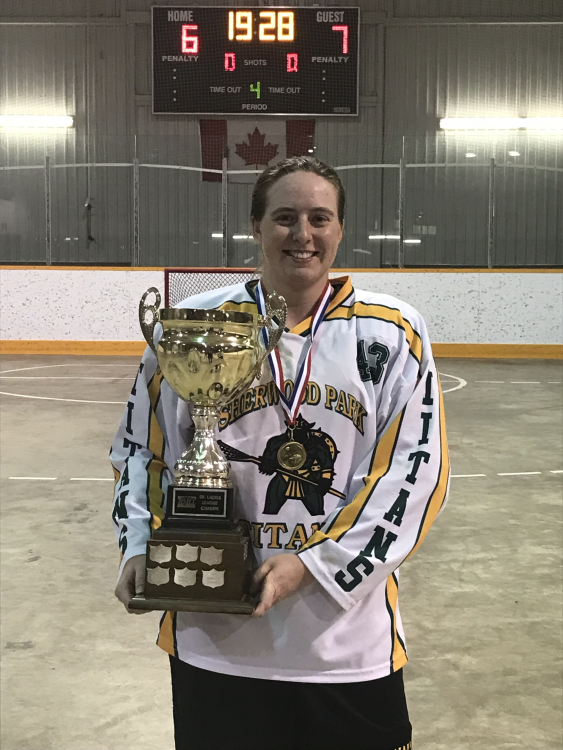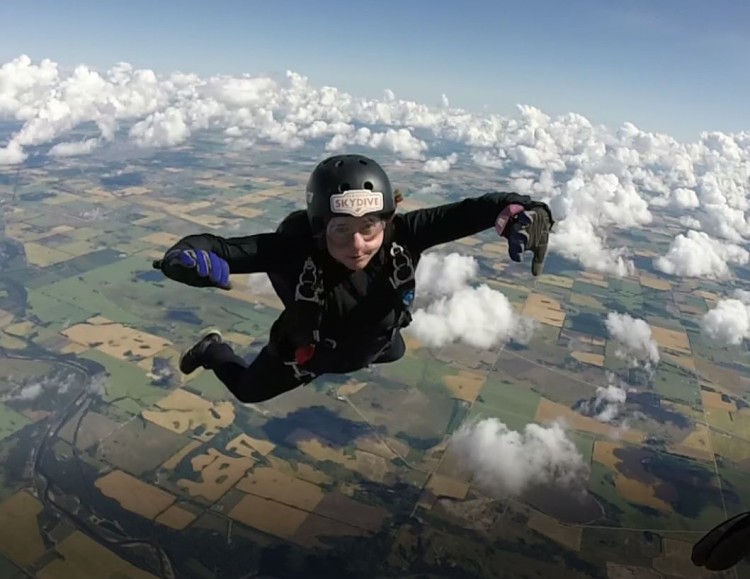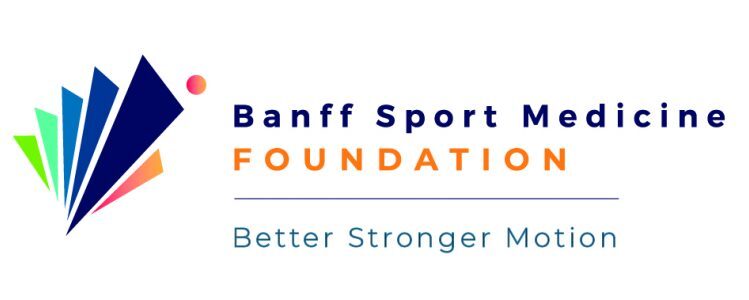Johanna’s Story
Shoulder Allograft and Stabilization Surgery
Without the Banff Sport Medicine hospital and this surgery, I wouldn’t have been able to do most of the activities I now enjoy.
It started when I was 16 and playing competitive soccer, mostly in next age group older than me. I’m a goalkeeper and diving tends to put my shoulder into at-risk positions. I’ve been training hard in the position since I was about 12, often playing soccer 6 times a week. In one game, I subluxed my shoulder and everything went down from there.
I dislocated my shoulder during the summer break right before 11th grade, playing flag football with my friends. After that dislocation, I was terrified to dislocate my shoulder again and it took me until the middle of October to start playing soccer again, only to dislocate my shoulder again early in the indoor soccer season in December.
I quickly had my first stabilization surgery in the new year and spent the months until outdoor soccer strengthening my shoulder. The surgery only held until early spring of my first year at university, even though I had extensive and intense keeper training with the university soccer team all through the fall.
I was playing in a soccer tournament when I got hit by another player and out popped my shoulder. 6 months later, I dislocated my shoulder again, this time sneezing while I was working as a gardener. And then again it dislocated when I sneezed while I was reading a book in bed.
I had a secondary surgery to fix my shoulder again, and it held for another two years. I was back playing competitive soccer when it came out again in practice during a drill that would definitely not have dislocated a normal shoulder. This was the 6th dislocation in about 6 years, despite two shoulder stabilization surgeries two years apart, and it was apparent that there was more going on than just damaged ligaments.
I went to see a specialist to see what was wrong with my shoulder and got referred to Dr. Heard at Banff Sport Medicine. After some x-rays, the problem was obvious: I was missing bone on my shoulder.
All my dislocations had gradually worn away at the socket of my shoulder and I no longer had a physical barrier preventing my shoulder from dislocating.
After some discussion with Dr. Heard, it was decided that I was a candidate to receive a shoulder allograft, where the missing bone on my shoulder would be replaced with a donor bone.
As I waited for a suitable donor, the need for the surgery became even more apparent.
I had dislocated my shoulder in my sleep one night and was then required to sleep in a bulky, warm shoulder brace. I waited about 8 months before a donor became available. In those 8 months, I had to wear the brace every night.
I continued to play soccer once my shoulder had healed from the most recent dislocation, but I was required to wear the brace at all times for any sport. It was uncomfortable, bulky and physically hindered my ability to play at my best.
Finally, I matched a donor and about a week later I was in the operating room getting my shoulder fixed for good.
I wasn’t very nervous; my previous two surgeries had been at Banff Sport Medicine. Pre and post care were fantastic every time. The nurses are kind and informative, and they always explained what they were doing and what to expect next. It’s an amazing hospital to recover at, especially when you can look out the window and admire the mountains.
Dr. Heard provided the same excellent care that the nurses at Banff Sport Medicine hospital did. He was calm, very knowledgeable about the surgery and patiently answered all my questions. From his interactions with myself, my parents and the nurses, I had no doubts about his ability to flawlessly perform the surgery.
Prior to the surgery, I had to receive a nerve block for my arm. I’ve never thought I’d be calm when getting what felt like a 6-inch needle in my neck, but the nurse made it painless and even somewhat fun.
Right before the anesthesiologist put me under, Dr. Heard even let me see the donor bone that I was receiving. I was surprised they did that, but very glad. It made the complexity of the surgery seem simpler and more normal.

It took me about 3 months to fully recover. Six weeks off work, then strength building exercises only. I started playing soccer again about 4 months after the surgery, but I only played recreational and as a field player. I didn’t play as a goalkeeper until about a year after the surgery, and even then I played with my shoulder brace. Good news is that I’ve never worn the brace to sleep again.
I had 3 follow up visits to Dr. Heard in the first year after my surgery. The first two were standard healing check ups and the third was 6 months post surgery.
After that, I returned to Banff Sport Medicine once a year for progress check ups. These are useful because I could ask Dr. Heard directly about any activity restrictions, and Dr. Heard informed me of any exercises I needed to do, or stop doing, to keep my healing progress on track.
Five years post surgery and I do more activities than I ever did before all the dislocations. I’ve continued to strengthen my shoulder, and at this point it’s probably stronger than my good one.
I play goalkeeper without my brace, and I have no fear that my shoulder will dislocate without excessive force. I’ve also picked up box lacrosse. It’s a fun, but rough sport. My shoulder has not held me back at all and I have no fear that my shoulder will give out on me, even when getting crosschecked into the boards.
I was also able to both waterski and snow ski again.
Previous to the surgery, I was hesitant to participate in those activities due to how unpredictable the falls can be. I still tried to ski, but I was always wearing my brace and was reluctant to push my skills beyond an intermediate level. Since the surgery, I’ve actively started to improve my skiing abilities, especially waterskiing. It’s something I never would have had the chance to do without fixing my shoulder.

Finally, I’ve also started skydiving. I never would have been able to pick up this amazing activity without the shoulder allograph. My shoulder would have been just to unstable to safely perform the freefall control maneuvers, and the jerk of the canopy opening would’ve been unpleasant.
I was 23 when I had the allograft and I would’ve been looking at early onset arthritis in my shoulder if the dislocations continued.
My experience as a whole has been amazing. I get to do most activities without fear of dislocation and I don’t have to worry about long term effects of multiple dislocations. My life would have turned out quite different without the allograft.
